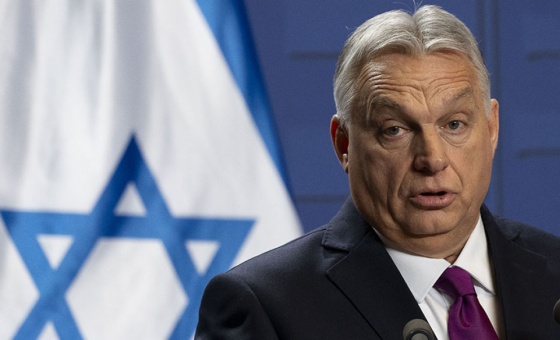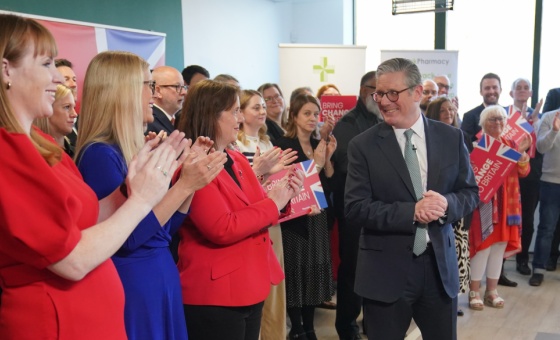This is the last article you can read this month
You can read 4 more article this month
You can read 4 more articles this month
Sorry your limit is up for this month
Please help support the Morning Star by subscribing here
MILLIONS of low-paid workers are being driven into absolute poverty, trade unions warned today as inflation soared to a 40-year high.
The unions joined charities, think tanks and MPs to ramp up the pressure on the government to deliver an emergency Budget aiding the poorest households, who are struggling under the weight of prices that are increasing faster than at any point in more than a generation.
Office for National Statistics (ONS) data revealed that consumer prices index inflation rose to 9 per cent in the year to April, up from an already high 7 per cent in March.
The rise was the fastest measured increase since records began in 1989.
The largest portion of the rise was due to the price cap on energy bills, which were hiked by 54 per cent for the average household at the start of April.
Unison general secretary Christina McAnea said: “For millions of low-paid workers, the struggle gets worse with every passing month.
“With prices surging and wages slumping, many households don’t have enough cash to cover the basics,” she said, calling for emergency support by boosting benefits and lifting public-sector wages.
Unite general secretary Sharon Graham warned of industrial action against employers who “can but won’t” pay decent wages and said calls for wage restraint should be directed at FTSE 100 chief executives.
She said: “Earnings are being pummelled, the government is shamefully turning its back on those in need and employers are squeezing wages.
“We will absolutely take no more lectures on pay restraint from the millionaire governor of the Bank of England.”
TUC general secretary Frances O’Grady criticised Tory MPs for telling families that “it’s their own fault for not working more hours or having the wrong diet.”
She said that families were “desperate for the government to help with an emergency Budget” and called on Chancellor Rishi Sunak to step in with a Budget “that helps families with a boost to universal credit and the minimum wage.”
Ms O’Grady also suggested a windfall tax on oil and gas to fund energy grants for struggling households.
Prospect union general secretary Mike Clancy warned that the inflation figures will leave workers “making impossible choices about what they cut from family budgets just to make ends meet.”
He said the government “needs to get real” with an emergency budget.
TSSA general secretary Manuel Cortes said the government had lost control of inflation.
“Let me be clear — the role of our trade union movement is to protect workers, especially at times like these when wages must reflect the cost of living,” he said.
“We will not shy away from doing so.”
And National Education Union joint general secretary Dr Mary Bousted said that while the government could help, it is “making a deliberate political choice to hit the living standards of public-sector workers including educators.”
Politicians and charities also joined calls for an emergency Budget with the SNP’s Alison Thewliss warning that the government was driving “millions of families into absolute poverty.”
Imran Hussain of Action for Children said families must be supported by increasing benefits, including with a rise in the child element of universal credit.
And the Joseph Rowntree Foundation warned that parents are skipping meals to ensure their children can eat and others are cutting back on showers to save water.
Prime Minister Boris Johnson faced pressure from MPs to ease the crisis during PMQs today after the inflation figures were revealed.
Labour leader Sir Keir Starmer said Mr Johnson should stop dithering and make an inevitable U-turn on imposing a windfall tax on oil and gas producers.
The party’s amendment to the Queen’s Speech asking for a new tax on energy giants’ profits was defeated by 310 votes to 248 on Tuesday evening after not receiving any support from Tory MPs — despite some pledges to do so.
In Commons today, Sir Keir said the PM was performing the “hokey cokey” over the policy and had not taken swifter action as he “doesn’t actually understand what working families are going through.”
He said that a one-off tax would “raise billions of pounds, cutting energy bills across the country.”
Sir Keir said many people were “living through this nightmare and they feel totally abandoned” by the government.
He raised the case of Phoenix Halliwell, who undergoes life-saving dialysis treatment for a rare kidney condition five days a week.
Sir Keir said: “Even though his wife — who is a midwife in the NHS — works extra shifts, during the winter they had to turn their central heating off and Phoenix skips meals to make ends meet, but their energy bill has still doubled.
“Phoenix says he feels like he’s being priced out of existence.
“Millions of our disabled, elderly and vulnerable neighbours are at the sharp end of this crisis, they simply can’t afford to live with dignity.”
Mr Johnson responded by incorrectly claiming that the NHS “covers the costs” of those on dialysis and offered to look at the case before defending his economic record.
He later had to correct his claim as the NHS only partly covers the cost and patients are only reimbursed after paying the bill.
PMQs also heard from SNP Westminster leader Ian Blackford who demanded that Chancellor Rishi Sunak either deliver an emergency budget or face the sack.
The PM defended the government’s existing package of support in response to cost-of-living increases, adding that “all sensible measures” will be looked at.









